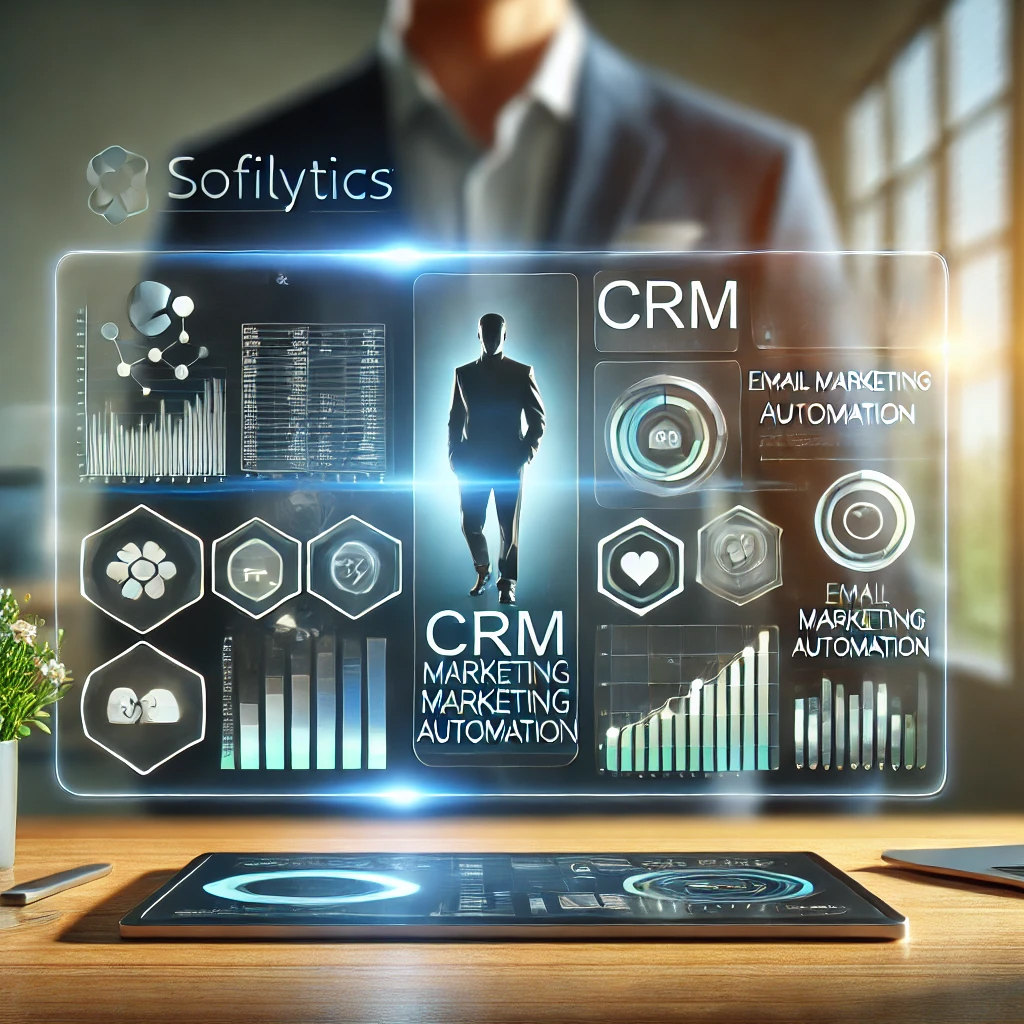In today’s competitive business landscape, maintaining strong, long-term relationships with clients is essential for sustaining business growth. Customer expectations are evolving, and companies must deliver exceptional service, reliable products, and personalized experiences to retain their clients. This is where Customer Relationship Management (CRM) systems play a pivotal role. By streamlining customer data and interactions, CRMs help businesses improve client retention and satisfaction through better communication, efficient support, and data-driven insights.
Centralized Customer Information
At the heart of any CRM is its ability to consolidate customer data into one centralized platform. This means that all customer interactions, purchase/contract history, and contact information are readily accessible by your team. With all this information in one place, your team can quickly address customer inquiries, provide tailored responses, and better understand customer needs. Having this data at their fingertips empowers teams to create personalized experiences, making customers feel valued and appreciated.
Improved Customer Service
The quick and efficient handling of customer issues is key to keeping customers satisfied. A CRM system allows your customer service team to track all customer interactions and ensure no issue falls through the cracks. Whether a customer reaches out via phone, email, or social media, a CRM system helps agents respond quickly and consistently across all channels. Additionally, CRM tools can help automate follow-up communications, ensuring timely responses and continued support, even after the initial interaction.
Personalized Marketing and Communication
Personalization is becoming increasingly important to customers, with many expecting businesses to know their preferences and tailor communication accordingly. CRM systems enable businesses to segment their customers based on various criteria such as buying behavior, interests, or demographics. This segmentation allows for highly targeted marketing campaigns that resonate with specific customer groups, resulting in higher engagement and satisfaction.
Furthermore, CRM tools can automate personalized emails, text messages, or promotions that speak directly to a customer’s previous interactions with the company. When customers receive messages that align with their preferences, they feel more connected to the brand, leading to increased loyalty.
Predictive Analytics for Proactive Engagement
A CRM system doesn’t just store customer data—it also analyzes it. By analyzing customer behaviors and trends, CRM software can help predict future actions, such as when a customer might be at risk of leaving or when they might be ready to make another purchase. Armed with this knowledge, businesses can engage with customers proactively, addressing potential issues before they escalate or offering incentives at the right time to keep customers satisfied.
Predictive analytics can also highlight cross-selling or upselling opportunities. For example, if a customer has frequently purchased a particular product, CRM software can suggest complementary items, helping to increase sales while enhancing the customer’s experience.
Strengthened Customer Relationships
Strong customer relationships are built on trust, communication, and consistent experiences. A CRM system allows businesses to stay in touch with customers throughout their journey, from acquisition to long-term engagement. With access to detailed customer histories and preferences, sales and support teams can tailor interactions that reflect a deep understanding of the customer’s needs.
When customers feel heard and valued, they are more likely to remain loyal to the brand, even if competitors offer similar products or services. A CRM system enables businesses to create a sense of continuity, ensuring that no matter who on the team interacts with a customer, the experience feels seamless and personalized.
Enhanced Team Collaboration
A CRM system fosters collaboration between different departments, such as sales, marketing, and customer support. By sharing customer data across teams, everyone has the same view of each customer’s journey. This collaboration ensures that marketing campaigns align with customer service follow-ups, sales teams can focus on warm leads, and the customer support team can resolve issues with full context. The result is a cohesive and unified approach to managing customer relationships, which boosts customer satisfaction.
Incorporating a CRM system into your business operations is more than just a way to organize customer data—it’s a powerful tool for improving customer retention and satisfaction. From providing personalized communication to enabling proactive engagement, CRM systems help businesses forge stronger, longer-lasting relationships with their customers. In the end, satisfied customers are loyal customers, and loyal customers are the key to long-term business success.
Ready to improve customer satisfaction with Sofilytics? Start exploring how a Sofilytics can transform your customer relationships and help your business grow. Book a demo or ask a question now.




